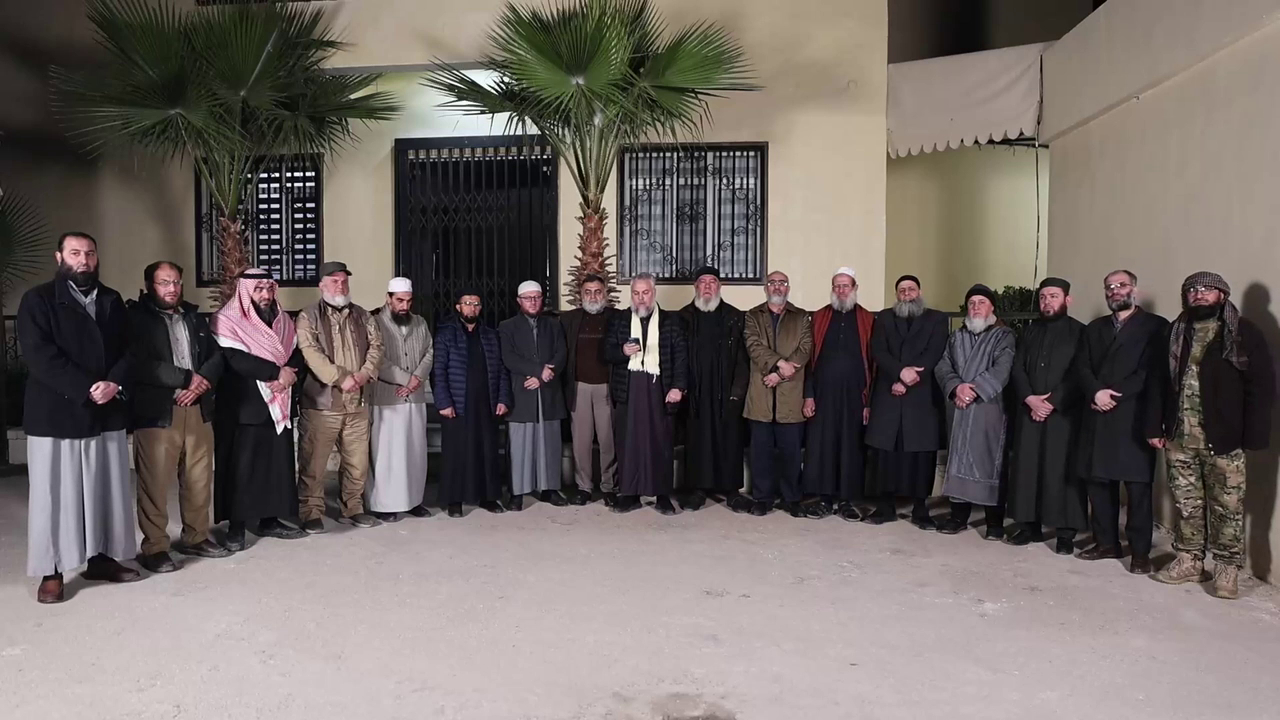
Prominent voices across the Muslim world have expressed strong support for the Repelling the Aggression operation, launched by revolutionary factions in northern Syria to counter Assad regime forces and their allies. The campaign, now in its second day, has drawn comparisons to the Al-Aqsa Flood operation in Gaza, with many commentators emphasizing its defensive nature and its alignment with broader struggles for justice in the region.
The Global Organization of the Supporters of the Prophet (GOSP) congratulated the Syrian revolutionary factions on their gains, calling the operation a “blessed conquest” and an inspiration for oppressed peoples seeking liberation. The group emphasized the necessity of unity among revolutionary factions and adherence to Islamic ethics in warfare.
Fayez Al-Kandari, a prominent Islamic advocate from Kuwait and former Guantanamo detainee, rejected claims that fighting Assad detracts from supporting Gaza. “Whoever separates between the Palestinian right and the Syrian right is a traitor. Whoever separates between Palestinian blood and Syrian blood is an oppressor,” he wrote online.
Al-Kandari’s comments reflect a growing sentiment that the struggles in Gaza and Syria are deeply interconnected. He criticized those who glorify Assad’s forces while claiming to support Palestinian liberation, calling them hypocritical and complicit in the regime’s crimes against civilians.
Syrian intellectual Faisal Al-Qassem, a TV presenter based in Doha, dismissed criticisms of the operation and highlighted the structural weaknesses of Assad’s forces. “I wonder how long it would have taken to defeat the Assad looting army in any battle, had it not been for the Russian air force and the support of dozens of Iranian mercenary terrorist militias? Notice how this army and its allies are collapsing today in Aleppo like dominoes,” he said.
Ahmad Mawlana, an expert in international relations, likened the campaign’s planning and execution to that of Hamas before its Al-Aqsa Flood operation. He highlighted the revolutionary factions’ years of preparation, saying, “It has been said about them, as was said about Hamas, that they ‘abandoned the cause…’ yet today, they show their readiness and commitment to defending their people.”
Islamic scholar Muhammad al-Mukhtar al-Shinqiti noted the shifting geopolitical dynamics after the Al-Aqsa Flood and their implications for Syria. “The Syrian revolutionaries now have an opportunity to achieve gains against Assad, who has lost his value to Israel and the Americans,” he wrote. Al-Shinqiti urged strategic planning and unity among factions to capitalize on this moment.
Ahmed al-Sayed, another prominent commentator, drew parallels between the oppression faced by Syrians and Palestinians. “The injustice our people in northern Syria endure is no less than what our people in Palestine face,” he stated, adding that supporting the revolutionaries in Syria is “a stand for truth and justice.”
Prominent scholars in the liberated areas, including AbdurRahim Attoun, Abdurazaq al-Mahdi, Anas Ayrout, and Madhhar Alwais released a joint statement emphasizing the religious and moral obligation to support the campaign. “This battle today is decisive for all of us, and it is incumbent upon everyone to support it with all their energy to safeguard the liberated areas, repel aggression, and defend the oppressed,” the group said. Their statement also highlighted the importance of unity and following both worldly and religious mandates to ensure victory and success.
Abu Basir Tartusi, a prominent cleric, called the campaign “long-awaited” and expressed hope it would pave the way for broader victories, potentially reaching the walls of Damascus.
GOSP called on Muslims worldwide to lend their financial, media, and political support to the revolution in Syria, urging charitable and relief organizations to intensify aid efforts during the harsh winter months. They also issued a sharp rebuke to the international community, condemning its silence on Assad regime atrocities as a “stigma on every claimant of justice and human rights.” The organization demanded the prosecution of those responsible for over a decade of crimes and called for concerted action to lift the oppression facing the Syrian people.
The widespread support for the Repelling the Aggression campaign is evidence of its significance not just for northern Syria but for broader regional dynamics. Public figures have framed the operation as part of a larger fight for justice and liberation, reinvigorating hope for change in the face of longstanding oppression.
As the campaign progresses, it continues to draw attention to the interconnected struggles of oppressed peoples across the region, uniting them in shared resistance against tyranny and aggression.








